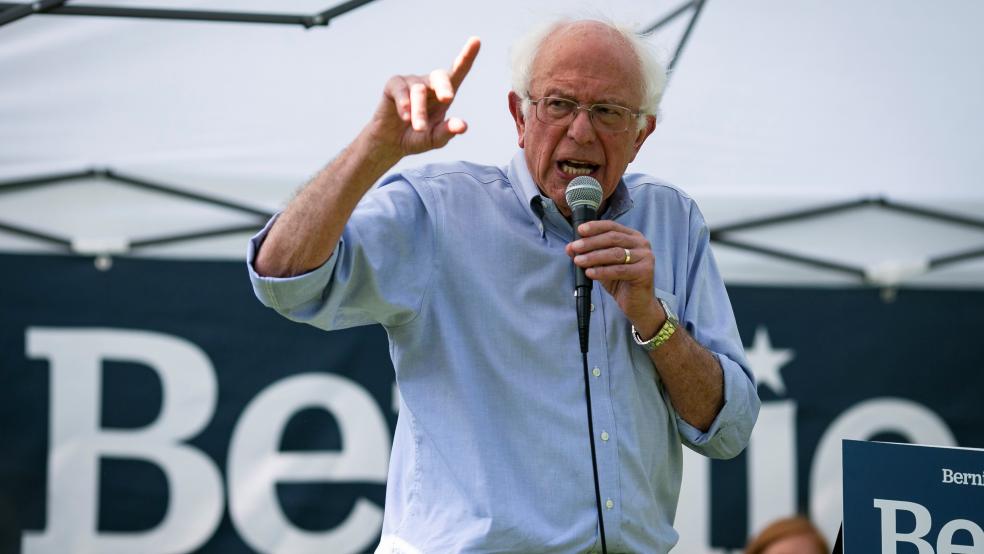Sen. Bernie Sanders, the current frontrunner for the Democratic presidential nomination, has proposed ambitious plans — most notably, a transition to a Medicare-for-All system — that would dramatically increase the size of the federal government. The centrist Progressive Policy Institute estimated recently that Sanders has proposed more than $50 trillion in new spending, the most of any presidential candidate, and has laid out options for raising revenue to finance about half of that increase.
In a pair of newly published opinion pieces, USA Today’s editorial board debates such an expansion with Josh Bivens, director of research at the Economic Policy Institute, a progressive think tank. Here’s a summary of the arguments:
These proposals are a gift to Trump and the GOP: “Republicans know that large segments of the electorate would be repelled by Sanders’ vast expansion of government spending at a time when Uncle Sam is already running $1 trillion annual deficits and is more than $23 trillion in debt,” the USA Today editorial board says.
Sanders’ tax and spending plans aren’t politically feasible, anyway, so embracing them would only serve to lessen the chances of winning over suburban professionals, a critical bloc of voters. “For Democrats, this should pose a number of questions. Foremost among them: Why are they spending so much time debating these costly, unrealistic plans when they should be focused on preserving Obamacare protections and the rule of law?”
It’s time to tackle the problems the U.S. faces: Yes, Sanders’ plans are ambitious. “The key thing people should realize, however, is that these plans are largely not introducing new costs on American families,” Bivens writes. “Instead, they’re rearranging current costs already baked in, with an aim to managing them more fairly and efficiently.”
Medicare for All would replace our current premiums with taxes — and it could actually reduce the total costs of American health care, even as it gets more people covered, according to some analyses. And not tackling climate change now will only cost us and future generations more later. “The United States is an enormously rich country with hugely pressing problems stemming from a past generation of rising inequality and a future of climate change. Why would we not go for bold solutions?”
Read the USA Today editorial here and the Bivens op-ed here.


